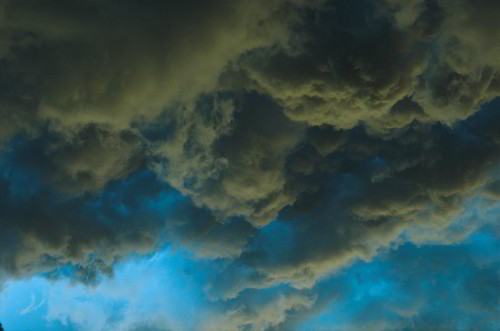The Cloud May Be About To Get Stormy
If you read the technical media and the blogosphere, we're all on an inexorable march towards The Cloud. No-one seems exactly sure what The Cloud is, but we're going there. As I wrote in a previous post, I use a simplistic definition for The Cloud; any form of storage that I connect to over a network connection classes as Cloud storage. It is, perhaps, an overly simplistic definition, but until a more formal and agreed definition surfaces, it will suffice for now.
I'm also, in some cases inadvertently, a reasonably prolific user of Cloud storage. I store large amounts of data in The Cloud; photos, software, general data, web pages, databases, emails and so on. With safely secured backups of course, as Cloud services are just like any other computer resource; sometimes they fail and go offline.
I don't, yet, store music in The Cloud but we're now starting to see so called music lockers being created for just that purpose. Amazon have just started a music locker and Apple are expected to follow soon. This is where the problems start.
I don't need a license to store the data I currently store in The Cloud. I don't need to seek permission from software companies to store backups of applications I regularly use. I just store them. I don't need to seek permission from the manufacturers of the cameras which take the photos I store in The Cloud. I just store them. I don't need to seek permission from the companies whose software I use to create slide decks that I store in The Cloud. I just store them.
But music is a whole lot more contentious and, if the record labels and other media organisations get their way, I may never end up storing my music in The Cloud. On the face of it, The Cloud is purpose made for The Cloud; upload my music, download it anywhere, stream it to any device. It should come as no surprise that the record labels don't like this.
Universal Music want only songs with digital receipts to be able to be uploaded to music lockers. Songs without such receipts would be considered unauthorised, including songs from CDs I own that I've ripped, songs purchased from retailers without such receipts, promotional songs without such receipts.
Sony want only a single computer to be designated to be able to upload to a music locker, without seeming to consider what happens when we upgrade or buy a new computer.
Warner Music Group go one step further and want a central music locker authority, ostensibly to be able to track you and sue you if you use your music locker in a way they don't like.
Amazon's music locker offering is built on the assumption that no additional licensing is required; a music locker is just network connected storage. The music labels don't agree with this and it will be interesting to see if Apple goes down the licensing route or stands its' ground with Amazon.
Until then, I'll just keep my own music collection safe and secure on resources and devices I own and control. But for The Cloud in general and for music lockers specifically, the cloud seems to be distinctly stormy and threatening right now.
Photo Credits: Peter Baer on Flickr.
